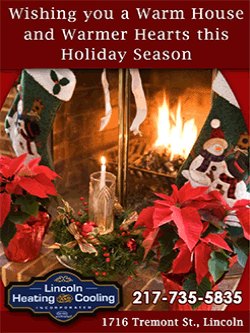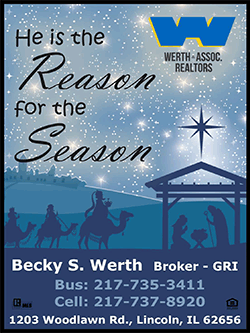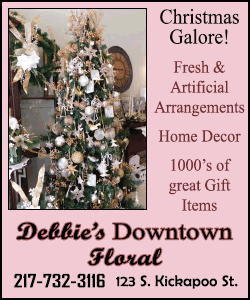|
 A
National Geographic article by Amy Briggs says Hanukkah’s origins
“date back to the turbulent centuries following the death of
Alexander the Great, the ancient Macedonian leader who conquered the
Persian Empire.” A
National Geographic article by Amy Briggs says Hanukkah’s origins
“date back to the turbulent centuries following the death of
Alexander the Great, the ancient Macedonian leader who conquered the
Persian Empire.”
Here is some history of Hanukkah and the ways it is celebrated.
As Briggs explains, after Alexander the Great died in 323 B.C.,
there was a century long struggle for power between his generals. In
the struggle, it was Greco-Syrian Seleucid kings who won the victory
and then ruled many of the territories Alexander had ruled.
During this time, Briggs says “Seleucids exerted their influence
through Hellenization, the spread of Greek art, architecture, and
religion. Local communities, especially in Judea, resisted it.”
When Seleucid King Antiochus IV Epiphanes became king, he attempted
to “force Judeans to assimilate.” The Jerusalem temple was captured,
and Seleucids placed an altar to the Greek god Zeus in it.
As part of the assimilation, Brigg says “Antiochus outlawed the
Jewish faith and mandated the worship of Greek gods.” Josephus, a
first century historian tells of the horrible treatment of Jews who
refused to assimilate. This included whipping, crucifixions and
destruction of sacred books.

Then a priest named Matthias rebelled against the
changes. Once Matthias died, his son Judah the Maccabee continued
fighting against the Seleucids, often winning.
By 164, Judah had regained control of Jerusalem. The temple was then
restored, cleansed and redecorated. The Jewish Virtual Library says
that is the Hanukkah miracle described in the Book of Maccabees.
Hannukah means “dedication” and “commemorates the miracle of light
that occurred when Judah redecorated the Temple to the Hebrew God.
Hanukkah is celebrated around the same time as Christmas. In fact,
the Jewish Virtual Library says many who are not Jewish “think of
this holiday as the Jewish Christmas, adopting many of the Christmas
customs, such as elaborate gift giving and decoration.”
Rebecca Forgrasz’s article “The story of Hanukkah: how a minor
Jewish holiday was remade in the image of Christmas” says, “[i]n the
US especially, Hanukkah has become a widely recognized holiday. As
well as lighting the National Menorah in Washington DC, the
president hosts an annual Hanukkah party in the White House. In big
cities like New York, parents of Jewish children are often invited
into elementary school classrooms to explain Hanukkah to students.”
Hanukkah traditions
The celebration of Hanukkah has many traditions that include
candles, food, gifts and games. Olivia B. Waxman’s Time magazine
article on the origin of these traditions describes how they came
about. For example, candles are lit today in place of lighting oil
lamps like they did in first century celebrations. In the same
article, historian Steven Fine says using candles became common in
18th century Eastern Europe because “candles became cleaner and
cheaper, and people could not get olive oil in the middle of the
winter because it’s expensive.”
Latkes [fried potato pancakes or fritters] and jelly donuts are
commonly served during Hanukkah celebrations. The fried foods are
symbolic of “the oil used to light the menorah.” Latkes in the
middle ages “were actually made of cheese.” By the mid-19th century,
potatoes were readily available and cheaper to use than cheese.
Chocolate gelt, which are foil wrapped chocolate coins are given out
during Hanukkah. Waxman says they “may have evolved from a bunch of
different traditions.” For example, in one 18th century Eastern
European tradition, “rabbis went from village to village giving
Hebrew School-style lessons.” To reward the Rabbis, villagers gave
them “some kind of edible tokens of appreciation.”
A commonly played Hannukah game is dreidel, which is a spinning
game. Though the origin is unknown, Times article on Hanukkah’s
history says, “it’s thought to have derived from a 16th century game
played in Ireland that made its way to Germany. As such, though the
four letters on the four sides of the top are now said to stand for
the words in the Hebrew sentence “a great miracle happened there”
(or, in Israel, “happened here”), that meaning probably showed up
later.”
Leah Silverman’s Town and Country Magazine article “17 Facts about
Hanukkah you Probably Didn’t Know” describes more about some of the
Hanukkah traditions such as lighting the Menorah, singing certain
songs and reciting blessings.
The Menorah, which Britannica says is sometimes called a “Hanukkah
lamp” [and] recalls the Temple lampstand.” The Menorah is “a simple
or elaborate candelabra with eight branches plus a holder for the
shammash (“servant”) candle that is used to light the other eight
candles.” These Menorahs come in various shapes and sizes.
The tradition of lighting a Menorah date back 1800 years. Silverman
says when the temple was rededicated “after the Maccabee victory …
they required a holy light to burn inside at all times, but the Jews
had only enough oil for one night. Incredibly, the light burned for
eight days.”
[to top of second column] |

Now, Jews remember that by lighting one candle each
of the eight nights of Hanukkah. The candles are to be lit soon
after sundown starting from the left side.
As the candles are lit, one of three Hebrew blessings is recited.
In some areas, there are also community menorah lighting festivals.
The world’s largest menorah, found in New York, is 36 feet tall.
Additionally, just as there are traditional Christmas carols, there
are some traditional Hanukkah songs.
These Hanukkah traditions differ in various parts of the world. For
instance, in North African communities, the menorah is placed in the
doorway instead of the window.
Fascinating Facts about Hanukkah
The article by Silverman provides several fascinating facts on some
of the Hanukkah traditions.
For example, people used to be given at Hanukkah. Now, gift giving
is more popular.
Fried foods, like the donuts eaten at Hanukkah symbolize the miracle
oil.
Silverman says that the dreidels ‘were invented as a distraction”
When Greek-Syrians outlawed Jewish studies, Jews “spun dreidels to
pretend they were merely playing games” as they read scripture.
The word “Hanukkah” comes from the Hebrew word “Hinuch,” which means
“to teach.” Usually, what is being taught is from the Torah.
Other ways to spell Hanukkah are Chanukah and Hannuka. These are all
considered correct because there is no direct translation from
Hebrew.
Of all the Jewish holidays, Hanukkah is actually the least
important. Rosh Hashanah, Yom Kippur and Passover are all more
important Jewish holidays. Hanukkah is considered more of a festival
than a holiday.
Unlike Christmas, the date of Hanukkah is different each year. It
always starts on the 25th day of Kislev, which is the ninth month on
the Jewish calendar. This year, it will start on the evening of
December 7 and end on December 15. In 2024, Hanukkah will last from
December 25 to January 2.
Like Christmas; however, Hanukkah traditions are important to those
who celebrate the holiday.
[Angela Reiners]
Resources:
Briggs, Amy. “How an Ancient Revolt Sparked the
Festival of Lights.”
National Geographic.
28 Nov. 2022.
https://www.nationalgeographic.com/
history/article/history-of-hanukkah
“Hanukkah: Festival, Menorah, Lighting.”
Britannica.
Hanukkah - Festival, Menorah, Lighting | Britannica
Forsgrasz, Rebecca. “The Story of Hanukkah: How a
Minor Jewish Holiday was Remade in the Image of Christmas.” 22 Dec.
2019.
www.theconversation.com
“Jewish Holidays: Chanukah.”
https://www.jewishvirtuallibrary.
org/hannukah
Silverman, Leah. “17 Facts about Hanukkah you
Probably Didn’t Know.” Town and Country Magazine. 15 Dec.
2022.
https://www.townandcountrymag.com/
leisure/arts-and-culture/g13787924/
hanukkah-facts-history-story/
Waxman, Olivia B. “The
Surprising Origins of 5 Hanukkah Traditions.” 11 Dec. 2017.
www.time.com
|
Read all the articles in our
new
2023 Home for the Holiday magazine
|

 |